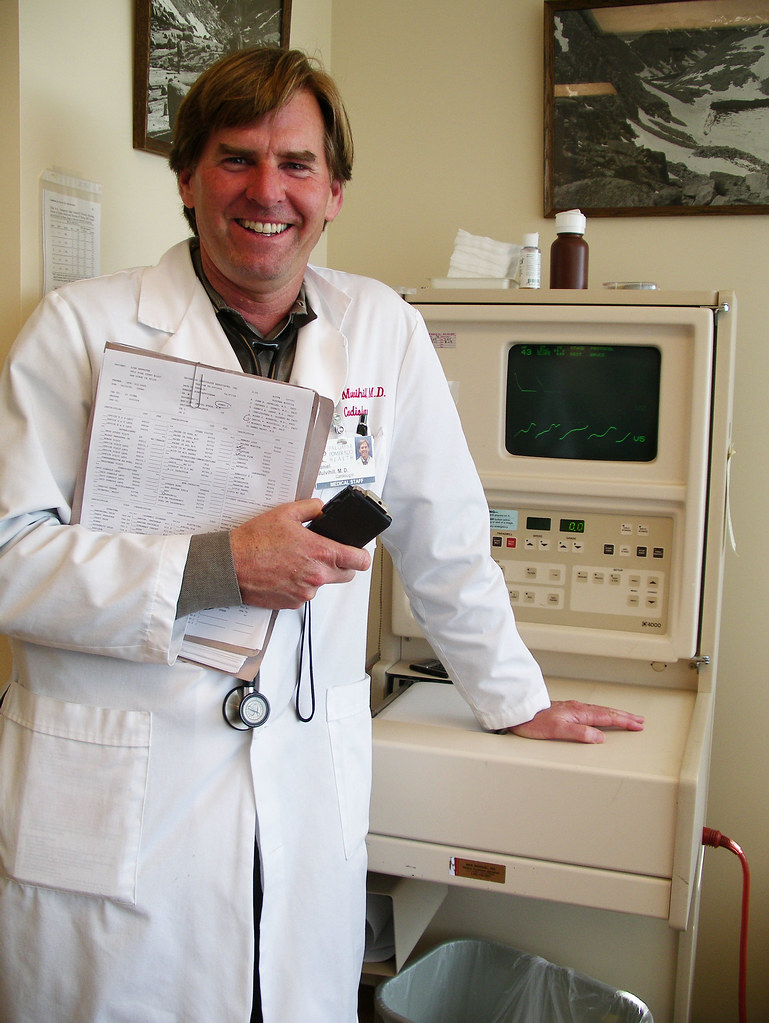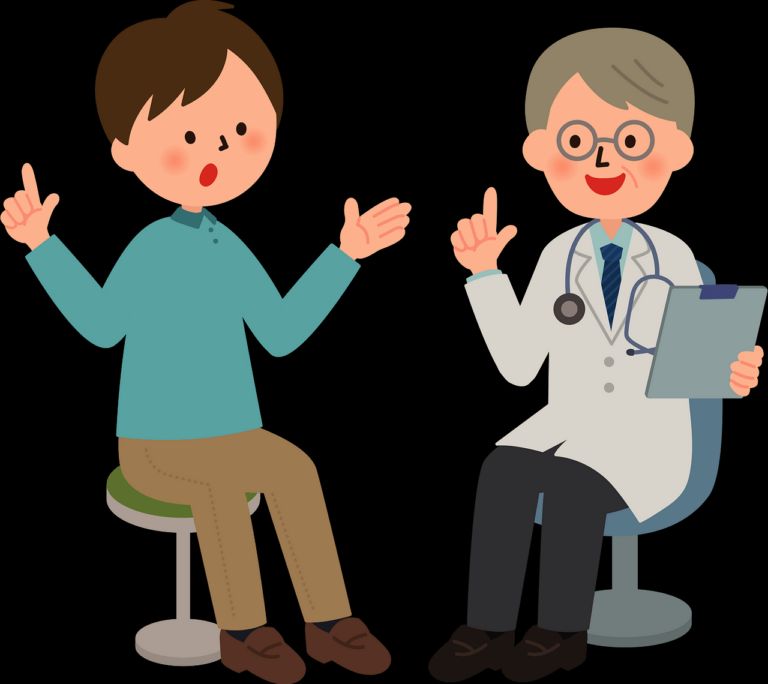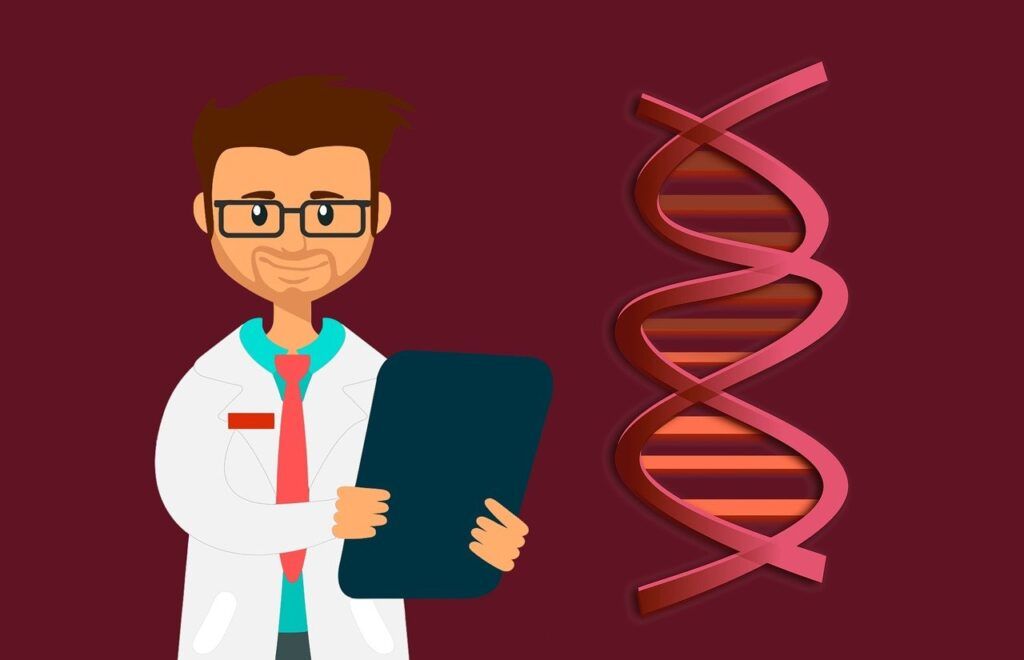
Let’s be honest—most men don’t rush to the doctor at the first sign of trouble. Between busy schedules and a deeply ingrained tendency to “tough it out,” it’s no surprise that many health issues often go undiagnosed until they become significantly serious. This reluctance can, unfortunately, have dire consequences, especially when it comes to conditions where early detection can quite literally save a life.
But here’s the crucial insight: some symptoms whisper their warnings long before they have a chance to roar. Tuning into these subtle bodily signals isn’t about giving in to weakness; it’s about embracing a proactive form of strength. Catching these early indicators can make all the difference, transforming a potentially life-threatening situation into a manageable condition with better treatment outcomes. It’s time for men to re-evaluate their approach to health, moving from a reactive stance to one of informed vigilance.
In honor of Men’s Health Awareness, and recognizing the critical importance of self-advocacy in health, we’re diving deep into a selection of these silent symptoms. These are the indicators that men, no matter their age or perceived robustness, should never ignore. They serve as vital red flags from your body, urging you to seek professional medical advice and take charge of your well-being before a minor whisper becomes an undeniable shout.

1. **Persistent Unexplained Fatigue**Sure, everyone feels worn out sometimes. Modern life often demands a lot from us, and a hectic schedule can easily leave anyone feeling drained. However, if you find yourself constantly dragging—even after enjoying a full night’s sleep—it might be more than just a byproduct of a demanding lifestyle. Chronic fatigue isn’t merely about feeling sleepy; it’s your body’s profound way of waving a serious red flag, signaling that something deeper and more concerning might be occurring within.
Long-lasting fatigue can be associated with several underlying medical conditions, each with its own significant implications for your health. For example, heart disease may cause your heart to work less efficiently, leading to a reduced oxygen supply throughout your body and resulting in persistent tiredness that no amount of rest seems to alleviate. The body is simply struggling to keep up with its fundamental circulatory demands.
Similarly, Type 2 diabetes can impair the way your body processes energy from food. When cells can’t properly absorb glucose for fuel, you’re left feeling drained and exhausted, even when you’re eating regularly. Low testosterone, particularly as men age, is another common culprit for energy depletion; it can contribute not only to low energy but also reduced motivation and difficulty concentrating, impacting daily life significantly. Moreover, let’s not overlook depression or anxiety, which often manifest physically as profound exhaustion before any obvious emotional symptoms become apparent.
If your fatigue comes with additional, compounding symptoms such as shortness of breath, sudden or unexplained weight changes, a noticeable drop in libido, or significant mood swings, it’s not just a suggestion—it’s a clear imperative to book a check-up. These symptoms frequently appear in clusters, providing even stronger signals that something is amiss. The earlier you address these interconnected issues, the easier they are to diagnose and, crucially, to treat effectively, preventing further progression and potential complications.
Read more about: Ben Lewis, Esteemed ‘Phantom’ Star of West End and Australia, Dies at 46: A Retrospective on a Remarkable Life and Career

2. **Frequent or Changed Urination Habits**Getting up once or twice a night to use the bathroom is often considered fairly common, particularly as men get older, and can easily be dismissed as a normal part of the aging process. However, if you find yourself making multiple trips to the bathroom every single night—a condition known as nocturia—or noticing a significant, consistent increase in urination frequency during the day, it could point to much more than just the passage of time. These changes can be critical indicators of underlying health concerns.
Frequent urination, especially when coupled with other urinary shifts, can be an early sign of an enlarged prostate, medically termed Benign Prostatic Hyperplasia (BPH). This condition, which affects many men over 50, can significantly interfere with normal bladder function, leading to a feeling of incomplete emptying or a constant need to go. Beyond BPH, such urinary changes can also signal Type 2 diabetes, where high blood sugar levels prompt the body to flush excess glucose through the urine, increasing output.
In some instances, these alterations may even indicate a urinary tract infection (UTI) or an overactive bladder, conditions that, while often treatable, require proper diagnosis. Furthermore, conditions like a weakened urine stream, difficulty initiating urination, or problems stopping the flow can all be related to prostate health or other urinary system issues. While it’s tempting to brush off these symptoms as minor inconveniences, repeated nighttime urination can severely disrupt your sleep and, consequently, impact your overall energy levels and daily functioning.
More importantly, a persistent change in your urinary patterns may be your body’s urgent way of alerting you to a deeper issue that needs attention. If this is a new symptom that has recently emerged, or if it’s gradually worsening over time, it is undoubtedly worth getting checked out by a healthcare professional. Early evaluation can identify the cause and lead to timely, effective interventions, preventing conditions from becoming more severe or complicated.
Read more about: Are You That Commuter? Unmasking the 14 Transit Faux Pas That Drive Fellow Riders and Operators Wild – A Guide to Smoother Journeys
3. **Erectile Dysfunction (ED)**It’s often too easy to assume that erectile dysfunction is just a natural, inevitable part of aging, a consequence of passing years that men simply have to accept. However, this assumption can be misleading and, at times, dangerous. ED frequently signals something much more serious than mere age-related decline—especially when it emerges suddenly or becomes consistently problematic. This symptom is not just a personal matter; it’s a vital barometer of your overall systemic health.
While ED can indeed stem from factors like temporary stress, specific medications, or hormonal imbalances, it is alarmingly often an early warning sign of cardiovascular disease. The mechanism is straightforward: achieving and maintaining an erection relies heavily on healthy, unobstructed blood flow to the . When arteries throughout the body are narrowed due to plaque buildup—a condition medically known as atherosclerosis—blood circulation becomes impaired. If blood flow is restricted in the smaller vessels supplying the penis, it is highly likely that it is also restricted elsewhere, including to your heart and brain, indicating widespread vascular compromise.
Beyond cardiovascular implications, ED can also be closely linked to undiagnosed or poorly managed diabetes, where high blood sugar damages blood vessels and nerves crucial for erectile function. Low testosterone (often referred to as ‘low T’) is another physiological contributor, affecting libido and erectile quality. Additionally, mental health concerns like chronic anxiety or depression can manifest physically as ED, creating a complex interplay between mind and body. It’s essential to understand that ED is not merely a bedroom issue; it is a critical indicator of your broader physical and mental well-being.
The good news is that erectile dysfunction is very treatable, and often reversible, particularly when the underlying root cause is identified and addressed. Treating the condition that is causing ED often improves not only ual health but also leads to significant enhancements in total well-being, potentially preventing more severe health crises down the line. Don’t suffer in silence or dismiss it as simply a part of getting older; seeking medical advice for ED can be the first step towards uncovering and managing a crucial health issue.

4. **Sudden or Unexplained Weight Loss**For many, losing a few pounds without actively trying might feel like an unexpected bonus, especially if you’ve been contemplating getting in shape. It might even seem like a welcome development. However, unintentional weight loss can actually be one of the earliest and most telling signs that something significant is off within your body. If you’ve dropped 10 pounds or more in a relatively short period—say, a few weeks or months—without any conscious change in your diet, exercise routine, or lifestyle, it is a symptom that absolutely warrants thorough investigation.
This kind of unexpected weight loss may be tied to a range of serious underlying conditions. Thyroid dysfunction, particularly hyperthyroidism, can dramatically speed up metabolism, leading to rapid weight loss. More ominously, it can be an early indicator of various cancers, including lung cancer and cancers of the gastrointestinal tract such as the pancreas, colon, and rectum. These malignancies can consume vast amounts of energy as they grow, or interfere with nutrient absorption. Digestive disorders like Crohn’s disease or celiac disease can also lead to nutrient malabsorption and subsequent weight loss.
Furthermore, poorly controlled diabetes can cause weight loss because when your body’s cells can’t properly use glucose for energy, it starts breaking down muscle and fat reserves instead. As Dr. Cedrek McFadden noted, “Your body normally tries to use glucose, or sugar, to metabolize energy. When the cells can’t capture that glucose and therefore the body has to use something else, what does it use? It uses your muscles and fat, which causes you to lose weight when you’re not expecting it.” Even neurological conditions like dementia can play a role, where cognitive decline leads to a neglect for eating and a lack of awareness of hunger.
When your body starts losing weight without your permission or intention, it’s sending a powerful signal that demands your attention. This is especially true if the weight loss is accompanied by other symptoms such as persistent fatigue, a loss of appetite, or noticeable changes in bowel habits. Early diagnosis is absolutely key to managing the underlying issue, and in many cases, it can even lead to reversing the condition entirely. Don’t mistake this for a lucky break; consider it a critical message from your body.
Read more about: Buckle Up! These Are the 13 Most Jaw-Dropping, Wacky, and Seriously Shocking Things Left Behind in Rental Cars

5. **Chest Pain or Pressure**You don’t need to clutch your chest dramatically like an actor in a movie for a chest sensation to be a problem. That uncomfortable feeling in your chest is, quite literally, your body’s urgent alarm system, and it demands immediate, serious attention. What might feel like simple indigestion, perhaps after a heavy meal, could actually be a much more severe and potentially life-threatening event, such as a myocardial infarction (heart attack) or angina. Both of these cardiac conditions can lead to permanent heart damage or even death if treatment is delayed.
Chest discomfort doesn’t always manifest as sharp, excruciating pain. It can often be felt as a more subtle but persistent pressure, a sense of tightness, or a dull heaviness that comes and goes, sometimes mistaken for muscle strain or even heartburn. Some men even describe it as a burning sensation. This variability is precisely why it’s so important not to dismiss recurring sensations in the chest area, even if they initially seem mild or atypical. Any recurring or unusual chest sensation warrants professional scrutiny.
When chest pain radiates to your left arm, jaw, or back, particularly if it’s accompanied by other concerning symptoms such as sweating, nausea, or shortness of breath, it’s not just a warning—it’s an emergency. In such scenarios, you need emergency medical attention without delay, not tomorrow or even later today, but immediately. It is crucial to call 911 rather than attempting to drive yourself to the hospital, as emergency responders are equipped to begin life-saving treatments the moment they arrive, providing critical care during those precious initial minutes.
Upon reaching the emergency setting, doctors will swiftly order diagnostic tests like troponin tests, CK-MB enzymes, and an electrocardiogram (ECG) to quickly confirm or rule out a cardiac event. Following the acute phase, comprehensive laboratory testing becomes crucial for preventing future episodes. This might include a complete cardiac risk assessment, high-sensitivity C-reactive protein (hs-CRP) to measure inflammation, advanced lipid profiling, and hemoglobin A1c, all designed to identify ongoing risk factors that might otherwise be missed in basic examinations. Never ignore an unusual chest sensation; it could be a call to action.
Read more about: Swing Strong, Play Long: 14 Simple Ways to Prevent Common Tennis and Golf Elbow Injuries

6. **Persistent Mood Changes or Irritability**When most people think of depression, they typically picture profound sadness, withdrawal, or perhaps a visible lack of energy. However, for men, the signs of depression and other mental health struggles often present quite differently, making them harder to recognize and easier to dismiss. Instead of overt sadness, men may exhibit increased irritability, uncharacteristic anger, a tendency to withdraw from social interactions, or a significant loss of interest in hobbies and relationships they once enjoyed. These less obvious symptoms can all strongly point to underlying mental health challenges.
These mood changes frequently go unrecognized, not just by others but by the men experiencing them, who might dismiss them as simply being “stressed out,” overworked, or just going through a tough phase. Yet, these shifts are often rooted in a combination of biological changes, the strain of chronic illness, intense work pressures, or even fluctuating hormone levels like low testosterone. When left unaddressed, these subtle but persistent mood alterations can escalate, leading to more serious problems such as chronic poor sleep, an unhealthy reliance on substance abuse as a coping mechanism, and tragically, an increased risk of suicide.
As Dr. Cedrek McFadden pointed out, “We know that in men, depression may not look the same. It may not be a tear, it may not be sadness — it may be more frustration or an outburst.” This crucial distinction highlights why it’s so important for both men themselves and the people around them to be acutely aware of these non-traditional presentations. Family members and close friends, in particular, need to truly pay attention to any noticeable changes in a man’s temperament or behavior, as they are often the first to observe these shifts.
Mental health is unequivocally just as important as physical health. Suffering in silence is never the answer, and recognizing these persistent mood changes is the vital first step toward seeking help. Professional support, whether through therapy, medication, or lifestyle adjustments, can make a profound difference. As McFadden affirmed, “If they see the signs, we feel the symptoms. In many of these cases, we can get help if we can identify (the problem).” Taking action empowers men to regain emotional balance and overall well-being.
Read more about: Master Your Commute: 12 Life-Changing Strategies to Slash Stress and Boost Your Well-being Every Day

7. **Changes in Bowel Habits**It’s admittedly not the most glamorous or comfortable topic to discuss, but noticeable changes in your bathroom behavior—specifically your bowel habits—should absolutely never be ignored. Your digestive system provides vital clues about your internal health, and shifts in its routine can signal anything from simple dietary imbalances to far more serious medical conditions. Paying attention to these often-overlooked details can be incredibly revealing and potentially life-saving.
If you start to notice blood in your stool, experience chronic constipation that lasts for an extended period, suffer from persistent diarrhea, or observe a sudden and unexplained change in the frequency, shape, size, consistency, or color of your stool, these are all symptoms that demand attention. While sometimes these changes might be as simple as a reaction to diet or stress, they can also indicate underlying issues like inflammation, infection, or, more seriously, colon or rectal cancer.
Men are statistically less likely to undergo routine screenings such as colonoscopies, which are crucial for detecting colorectal cancer early. This makes paying close attention to everyday changes in bowel habits even more critical. Even if the symptoms seem mild or intermittent, they may signal inflammation, a brewing infection, or something requiring a much deeper medical evaluation to ascertain the cause. Do not self-diagnose or assume these issues will simply resolve on their own; persistence is a key indicator that professional help is needed.
Consider this a crucial rule of thumb: If your body starts acting differently, particularly concerning digestion or urination, and these changes persist for more than just a few days, it’s time to book an appointment with your healthcare provider. As Dr. McFadden wisely advises, this is “your yearly public service announcement to look into the toilet.” Early intervention and proper screening can make all the difference in managing the underlying issue, improving outcomes, and potentially saving lives. Ignoring these fundamental signals is a risk no one should take.
Now that we’ve covered some of the initial red flags, it’s time to delve deeper into the next set of vital symptoms that men often overlook. These indicators, while sometimes subtle, can signal serious underlying conditions demanding your attention. Ignoring them isn’t being strong; it’s a gamble with your health. Embracing proactive health means understanding these signals and taking decisive action to secure your well-being. Let’s unmask these hidden dangers together.
Read more about: Ben Lewis, Esteemed ‘Phantom’ Star of West End and Australia, Dies at 46: A Retrospective on a Remarkable Life and Career

8. **Severe or Sudden Back Pain**Back pain is a common complaint, and it’s easy to attribute it to a strenuous day or an awkward movement. However, if back pain strikes suddenly and severely, particularly when there hasn’t been any physical exertion to explain it, it demands immediate medical evaluation. This kind of pain, especially when described as a tearing or ripping sensation, can be an urgent alarm bell from your body, signaling something far more critical than a simple muscle strain.
Such intense and abrupt back pain may indicate an abdominal aortic aneurysm (AAA). This is a potentially catastrophic condition where the main blood vessel stemming from your heart, the aorta, is bulging or has begun to rupture. AAAs affect approximately 200,000 Americans annually, with men over 65 who have a history of smoking facing the highest risk. Early identification is crucial, as a ruptured AAA is a life-threatening emergency.
Beyond AAAs, sudden severe back pain could also be a symptom of kidney stones. These painful formations in the kidneys can cause agonizing discomfort as they pass through the urinary tract. To diagnose these conditions, doctors may order specific laboratory evaluations such as D-dimer testing to check for abnormal clotting, or creatinine measurements and urinalysis for kidney stones. Abdominal ultrasound or CT scanning often provides a definitive diagnosis for AAAs.
It is imperative to know when to seek emergency care. If your back pain is accompanied by other alarming symptoms like dizziness, a rapid heart rate, or an overwhelming feeling of impending doom, do not delay. Proceed directly to an emergency room, as these combinations of symptoms indicate a critical situation that cannot wait for scheduled outpatient testing. Prompt action can make all the difference in managing these severe health challenges.
Read more about: Remembering the Stars: A Fond Farewell to the Beloved ‘Happy Days’ Actors We’ve Lost

9. **Shortness of Breath at Rest**It’s one thing to feel winded after a vigorous workout or climbing a long flight of stairs, but finding yourself struggling to catch your breath while simply sitting or lying down is a profoundly different matter. Unexplained breathlessness at rest is not normal and should never be dismissed as a minor inconvenience or a sign of getting older. It serves as a clear indication that something serious may be amiss with your heart or lungs.
This kind of breathlessness can be a tell-tale sign of underlying conditions such as heart failure, where your heart isn’t pumping blood as efficiently as it should. It could also point to a pulmonary embolism, which is a dangerous blood clot in the lung, or advancing chronic obstructive pulmonary disease (COPD). All these conditions demand prompt medical evaluation and intervention to prevent further complications.
When you present with unexplained breathlessness, a diagnostic workup will typically involve specific tests. These may include B-type natriuretic peptide (BNP) testing to assess for heart failure, D-dimer to screen for potential blood clots, and pulse oximetry to measure your blood oxygen levels. These tests help healthcare providers zero in on the root cause of your symptoms and determine the most effective course of action.
Critically, if your breathlessness comes on suddenly or is accompanied by chest pain, this situation warrants immediate emergency care. Approximately 900,000 Americans experience potentially deadly blood clots annually, with many cases initially presenting as unexplained shortness of breath. Waiting for a scheduled appointment could have severe consequences. Seeking immediate attention ensures that potentially life-saving treatments can be initiated without delay.
Read more about: Diane Keaton: Her Final Days, Cause of Death, and a Look Back at a Remarkable Life at 79

10. **Memory Lapses or Confusion**Occasional forgetfulness, like misplacing your keys or momentarily forgetting a name, is a common experience and often a normal part of life’s hustle. However, if you or your loved ones begin to notice frequent and persistent memory lapses, or if you’re experiencing noticeable confusion that goes beyond the occasional ‘senior moment,’ these changes can indicate something more serious than mere absentmindedness. It’s a signal from your brain that deserves thorough investigation.
These cognitive shifts can be linked to a variety of underlying issues, ranging from vitamin deficiencies that impact brain function to sleep disorders that disrupt cognitive processing. More significantly, frequent memory problems and confusion can be early indicators of cognitive decline or even conditions like dementia. As Dr. Cedrek McFadden noted, in cases of dementia, “There can be a cognitive decline, where people just have this neglect for eating and not even being aware of it.” Such a decline can affect various aspects of daily life, from problem-solving to basic self-care.
When memory loss starts to interfere with your ability to focus, concentrate, or solve everyday problems, it’s a clear sign that it’s time to investigate. Early detection in managing potential brain health concerns is absolutely key. Identifying the cause sooner rather than later allows for potential interventions, whether it’s addressing a vitamin deficiency, managing a sleep disorder, or initiating strategies to support cognitive function.
Beyond seeking medical advice, staying mentally active through engaging hobbies, learning new skills, and maintaining social connections can also play a supportive role in cognitive health. Don’t dismiss persistent memory issues or a growing sense of confusion; instead, consider them vital messages from your brain asking for attention and care. A proactive approach can help preserve your mental sharpness and overall quality of life.
Read more about: Disappointment in Every Byte: 11 Gaming Consoles Players Say They’d Unbuy If They Had a Choice

11. **Difficulty Sleeping**Many men view tossing and turning at night as a minor annoyance or simply a byproduct of stress or a busy mind. While occasional sleeplessness is normal, chronic difficulty sleeping or experiencing poor-quality sleep on a regular basis is much more than just a nuisance; it’s a significant health warning. Insomnia or persistent sleep problems can profoundly impact more than just your energy levels; they are intricately linked to a host of serious health conditions.
Chronic sleep issues are associated with an increased risk of heart disease, obesity, depression, and a weakened immune system. The impact of poor sleep isn’t just physical; it can also significantly affect your mood, ability to focus, and decision-making skills throughout the day. When sleep patterns are consistently disrupted, your body doesn’t get the crucial restorative time it needs, leading to a cascade of potential health problems.
One common and often undiagnosed cause of significant sleep disruption is sleep apnea, a disorder where a person’s breathing repeatedly stops and restarts during sleep. Dr. Cedrek McFadden highlighted this, noting that it can lead to “falling asleep at the red light that can interfere with your safety.” He explained the link between excess weight and sleep apnea, stating that “When you’re gaining weight around the waist, it’s not just staying there. It’s also staying in the upper respiratory system and that can interfere with how you move air at night.” This struggle to breathe at night leads to constant tiredness during the day as the body tries to catch up on rest.
If sleep issues persist for more than a few weeks, despite efforts to improve sleep hygiene, it absolutely deserves medical attention. The good news is that the cause is often treatable, whether it’s addressing sleep apnea through lifestyle changes or devices, managing stress-related insomnia with behavioral therapies, or treating underlying conditions like depression. Taking action to improve your sleep isn’t just about feeling less tired; it’s a critical step toward protecting your heart, metabolism, and overall mental well-being, enhancing your safety and daily functioning.
Read more about: Signs of a Blood Clot You Should Never Ignore, According to Medical Experts

12. **Persistent Cough**A cough is typically a symptom we associate with a common cold or seasonal allergies, and it usually resolves within a few days. However, a cough that lingers for weeks on end, especially if it occurs without other obvious cold symptoms, should be considered a significant red flag. This kind of persistent cough is your body’s way of signaling that something deeper and potentially more serious may be happening within your respiratory system.
Such a prolonged cough can be linked to a variety of conditions, some benign and others requiring urgent medical attention. It might be a persistent symptom of allergies, chronic asthma, or a lingering lung infection that hasn’t fully cleared. More concerningly, a persistent cough can be an early indicator of serious lung diseases, including chronic obstructive pulmonary disease (COPD) or even lung cancer, particularly for those with a smoking history.
It is vital to pay close attention to any accompanying symptoms. If your long-term cough is accompanied by blood, a noticeable wheezing sound when you breathe, or unexplained weight loss, it’s crucial to get checked immediately. These additional signs elevate the concern and necessitate prompt professional evaluation. Ignoring a cough that won’t go away can put unnecessary strain on your body and allow underlying conditions to progress untreated.
Early diagnosis and treatment are paramount for improving outcomes, especially when dealing with respiratory conditions. Don’t simply hope a persistent cough will resolve itself. If it has lingered for weeks, or if you notice any concerning associated symptoms, schedule an appointment with your healthcare provider to identify the cause and ensure you receive the appropriate care. Timely intervention can significantly improve your prognosis and quality of life.
Read more about: Mastering Virtual Presence: 12 Subtle Zoom Meeting Mistakes That Undermine Your Professional Image

13. **Skin Changes That Don’t Heal**Your skin is the body’s largest organ and often provides visible clues about your internal health. While many skin changes are harmless, certain alterations that persist or evolve should never be overlooked. Men, in particular, often tend to disregard changes in their skin, especially in areas that are not easily visible or those they consider minor blemishes. However, paying attention to these signals is a critical aspect of preventive health.
Any mole that changes in shape, size, color, or texture, or a sore or lesion that doesn’t heal within a few weeks, warrants immediate medical attention. These could be critical indicators of skin cancer, including melanoma, which can be highly aggressive if not detected and treated early. Sudden discoloration, new growths, or any persistent itching or bleeding from a skin spot are also signs that demand professional scrutiny.
Beyond cancer, skin changes that don’t heal could also signal other underlying conditions, such as chronic infections, inflammatory issues, or systemic diseases that manifest on the skin. Regular self-checks, where you carefully examine your skin from head to toe, are an essential practice. Many men overlook skin changes, especially on their back, scalp, or other less accessible areas.
It is strongly recommended that you perform self-checks monthly and schedule yearly professional skin exams with a dermatologist, especially if you have a history of sun exposure, numerous moles, or a family history of skin cancer. Any change that persists beyond a few weeks, regardless of how minor it seems, deserves medical attention. Prioritizing your skin health is a key component of your overall well-being and can lead to early detection and successful treatment of potentially serious conditions.
Read more about: Robin Williams’ Final Act: Unmasking the Invisible Monster of Lewy Body Dementia and a Widow’s Enduring Love

14. **Reproductive Health Concerns**While erectile dysfunction (ED) was discussed earlier, men’s reproductive health encompasses a broader range of vital signs that are often ignored due to embarrassment or a lack of awareness. Your reproductive system is not just about fertility; it serves as a crucial window into your hormonal, urinary, and systemic health. Ignoring specific warning signs can delay the diagnosis of infections, ually transmitted diseases, or even cancer.
Key warning indicators include testicular pain or swelling, which could signal conditions like orchitis (inflammation of the testicles) or varicocele, or more seriously, testicular cancer. The presence of unusual lumps or bumps in the testicular area is another critical sign that demands immediate attention. These can often be painless, leading men to delay seeking care, yet early detection of testicular cancer is vital for successful treatment.
Other significant symptoms to watch for include painful ejaculation, a noticeable decrease in libido or ual drive, and particularly alarming, the presence of blood in semen or urine. While some urinary symptoms were mentioned earlier, blood in semen (hematuria) or pain during ejaculation are specific to reproductive and prostate health. These can indicate various issues, from infections to prostate problems or even bladder or prostate cancer.
Prostate health is particularly important as men age. Symptoms like a weak or interrupted urine flow, or lower back or pelvic pain, alongside those mentioned above, could point to benign prostatic hyperplasia (BPH), prostatitis, or prostate cancer. Regular self-exams and annual checkups that may include PSA (prostate-specific antigen) testing, digital rectal exams (DRE), and imaging are fundamental. Recognizing these men’s health warning signs early ensures prompt diagnosis and treatment, improving outcomes and protecting your long-term reproductive and overall health.
Read more about: Navigating the Wild Side: 15 Pets You Can’t Legally Own in the U.S. – A Comprehensive Guide for Responsible Owners

15. **Swelling in the Legs or Feet**Swelling in the lower extremities, specifically in the legs or feet, is a symptom that men should never disregard. While it might seem like a minor issue, perhaps attributed to standing too long or simply aging, persistent swelling often signals a more profound underlying medical condition that requires immediate attention. Your body could be retaining fluid due to a significant health challenge.
If you notice swelling predominantly in just one leg, it could be a warning sign of a deep vein thrombosis (DVT), which is a serious blood clot. A DVT can be life-threatening if the clot dislodges and travels to the lungs. Conversely, if you experience swelling in both legs, especially when it is accompanied by shortness of breath or persistent fatigue, it can be an indicator of conditions like heart failure or kidney disease. Both of these conditions impair the body’s ability to properly circulate fluids or filter waste, leading to fluid retention.
Heart failure can cause fluid to back up into the body’s tissues, resulting in swelling, while kidney disease can lead to an accumulation of excess fluid and sodium due to impaired kidney function. It’s important to understand that persistent swelling is not merely cosmetic; it is a sign that your body’s critical systems are not functioning optimally. The specific location and accompanying symptoms can provide crucial clues about the cause.
Therefore, don’t dismiss persistent swelling in your legs or feet. A prompt medical evaluation is essential to identify the underlying cause and prevent serious complications. Healthcare providers can conduct examinations and order necessary tests to diagnose the issue accurately, leading to timely and effective treatment. Taking action when you notice this swelling is a crucial step in maintaining your cardiovascular and renal health, potentially averting more severe health crises.
Many of these symptoms are common, and that’s what makes them so dangerous. It’s all too easy to dismiss them as stress, the inevitable march of age, or simply bad habits. But listening to your body, truly tuning into its signals, can quite literally save your life. This isn’t about giving in to weakness; it’s about embracing a proactive form of strength and self-advocacy.
Read more about: Beyond the Pace: Your Definitive Guide to Running Mechanics, Injury Prevention, and Holistic Well-being
If you’re experiencing any of the symptoms listed above, or indeed any persistent health concern, don’t wait. Take that vital step: schedule an appointment, talk openly with your healthcare provider, and embark on the journey toward better health. Early intervention and informed action are the most powerful tools you have to maintain an active, fulfilling life. Prioritize your health above all else, because the sooner you act, the more treatment options you’ll have, and the better your outcomes will be.




